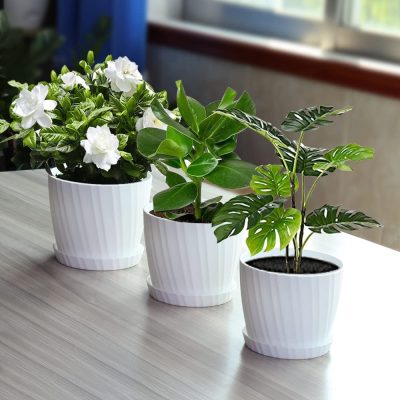Plastic plant pots have gained popularity as practical containers for nurturing greenery, but it’s essential to consider their environmental implications. As we strive for sustainable gardening practices, understanding the impact of these pots is crucial.
Plastic pots are lauded for their durability and reusability. However, their production is reliant on petrochemicals, contributing to carbon emissions and fossil fuel consumption. To mitigate this, consider investing in pots made from recycled plastic or biodegradable alternatives. These choices reduce the demand for new plastic production and lessen the burden on landfills.
Recycling plastic pots is another avenue to explore. Many local garden centers and recycling facilities accept used pots for repurposing. This diverts waste from landfills and contributes to the circular economy. When recycling isn’t possible, upcycling pots for DIY gardening projects or repurposing them for storage can extend their lifespan and minimize waste.
Furthermore, responsible disposal is paramount. If pots are beyond reuse or recycling, ensure proper disposal according to local regulations. This prevents them from ending up in natural habitats, where they can harm wildlife and ecosystems.
In conclusion, plastic plant pots offer convenience and durability, but their environmental impact warrants consideration. By opting for recycled or biodegradable options, recycling, upcycling, and practicing responsible disposal, gardeners can contribute to a greener and more sustainable gardening landscape.







